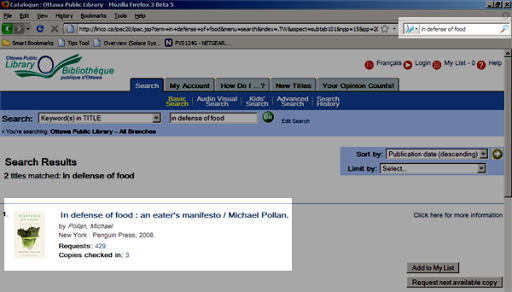Yes, I think it is. Long-winded explanation follows.
Me: I'm a guy who loves to work on a laptop. I've owned my little Thinkpad since 2004. I have dragged it between Ottawa and Montreal dozens of times, hauled it through Spain and the United States while vacationing, it's been through several coffee shops in Ottawa, and even tonight, with three other computers in my apartment much faster than this one, I'm in the living room, writing this post on the faithful machine. If you call me up and need help with a build script or a complicated subversion operation, I'll run over to your cube with it and we can hack on the problem together, each on our own screen. Or anyway, I would if there were wireless network access points at the office.
Which there aren't.
(Yes, I'm well aware of the irony of working for a company that makes network equipment. No need to point it out.)

The subject came up on Friday evening, as a bunch of us engineers were sitting around having a beer before leaving for the weekend. Someone (I swear it wasn't me this time) wondered out loud why in this day and age, we didn't have wireless APs at the office. Asked our CTO: "Why don't we just drive to Futureshop and spend the fifty bucks?"
I suppose it's always been a "nice to have" feature of the office, never a true requirement, and commercial-grade WAPs are more expensive than the consumer versions from Linksys. I've also heard mentions that there might be concerns about the security of the setup, given that we lease a floor on a building housing a bunch of other companies. I realized after the discussion, however, that the security argument was bunk, and having no WLAN could actually put us at much greater risk than having one.
It is an oft-repeated saying in security discussions that humans are often the weakest part of a security system. In his book Secrets and Lies, security guru Bruce Schneier again reminds us, as he has before, that an inconvenient security system is self-defeating because humans will simply end up not using it. In Chapter 17, he relates this story:
It has been said that the most insecure system is the one that isn't used. And more often than not, a security system isn't used because it's just too irritating.
Recently I did some work for the security group in a major multinational corporation. They were concerned that their senior management was doing business on insecure phones - land lines and cellular - sometimes in a foreign country. Could I help? There were several secure-voice products, and we talked about them and how they worked. The voice quality was not as good as normal phones. There was a several-second delay at the start of the call while the encryption algorithm was initialized. The phones were a little larger than the smallest and sexiest cellular phones. But their conversations would be encrypted.
Not good enough, said the senior executives. They wanted a secure phone, but they were unwilling to live with inferior voice quality, or longer call setup time. And in the end, they continued talking over insecure phones.
This is exactly the risk that an office takes by not deploying secure, properly configured WAPs managed by the IT team. Wireless networks are a convenience for many. There are some (albeit still rare) laptops appearing that don't even have a network jack anymore; and this is just the beginning of that design trend. Sooner or later, someone will get fed up and install a rogue access point, connected to the corporate LAN, and quite possibly insecurely configured and allowing routing to every resource on the network. It may already have happened. Wishfully thinking otherwise is simply ignoring the human part of the equation, hardly good practice of security.




